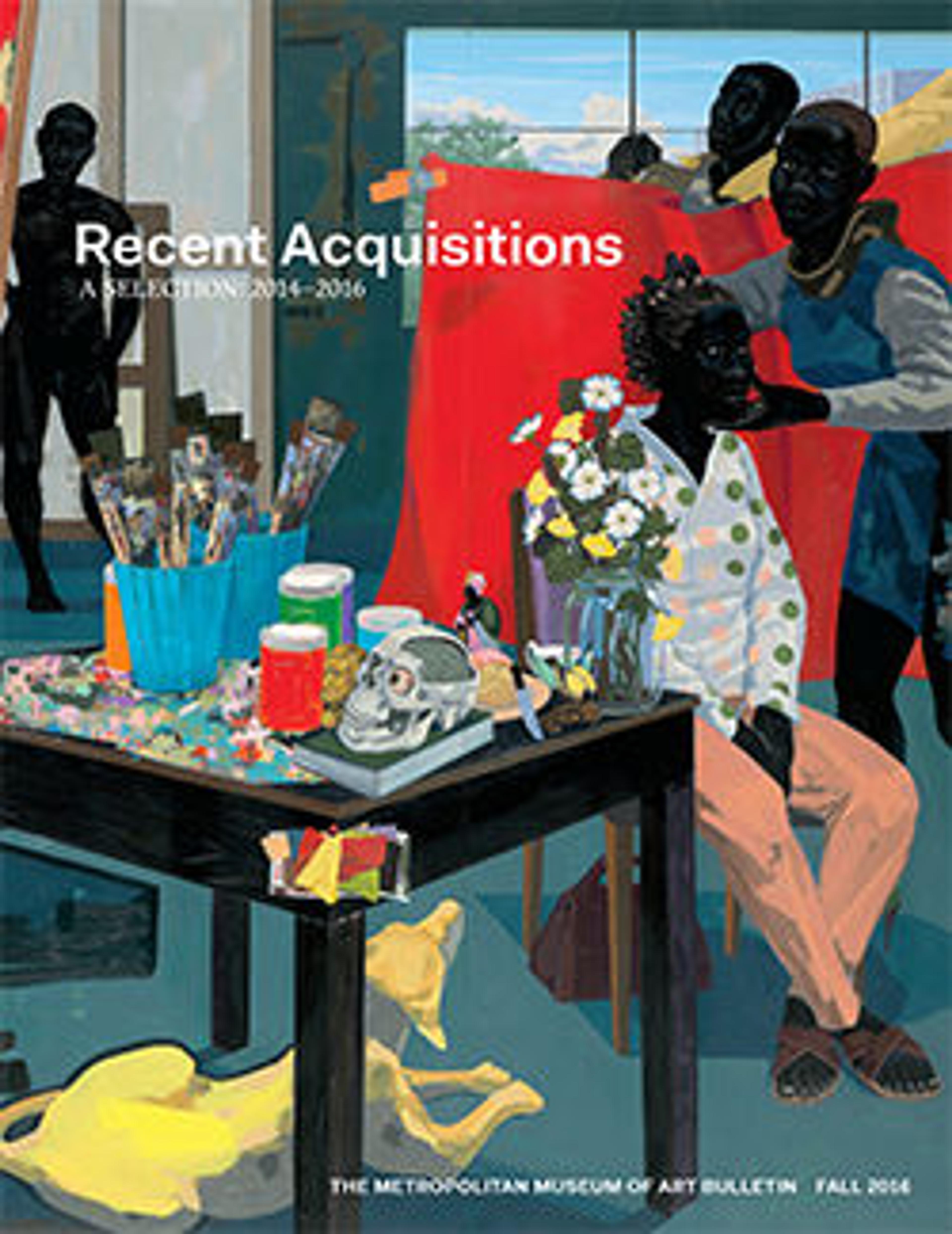Mezza Filigrana, no cat. no.
Between 1932 and 1947, Carlo Scarpa worked closely with Paolo Venini and other master glassblowers to pioneer techniques, silhouettes, and colors that thoroughly modernized the ancient traditions of the glass-making Venetian island Murano. New methods of surface decoration were invented and each vessel is named for the techniques employed in their making, emphasizing the fact that experimentation was crucial to producing such a dazzling array of visual and material effects.
Mezza Filigrana (half-filigree) glass is a technique used since the sixteenth century in which a series of clear glass rods are fused with a piece of lattimo (milky) or colored glass at the center. Because the glass is blown into the thinnest possible structures, the vessels weigh just a few ounces each. In this piece, Scarpa has carried the form of the mezza filigrana into the uneven lip, thereby emphasizing the swirling movement of the glass threads and making them tactile, rather than purely decorative.
Mezza Filigrana (half-filigree) glass is a technique used since the sixteenth century in which a series of clear glass rods are fused with a piece of lattimo (milky) or colored glass at the center. Because the glass is blown into the thinnest possible structures, the vessels weigh just a few ounces each. In this piece, Scarpa has carried the form of the mezza filigrana into the uneven lip, thereby emphasizing the swirling movement of the glass threads and making them tactile, rather than purely decorative.
Artwork Details
- Title: Mezza Filigrana, no cat. no.
- Artist: Carlo Scarpa (Italian, Venice 1906–1978 Sendai, Japan)
- Manufacturer: Venini & Co., Murano, Italy, established 1921
- Date: ca. 1932–36
- Medium: Glass
- Dimensions: 2 5/8 × 3 × 3 in., 0.1 lb. (6.7 × 7.6 × 7.6 cm)
- Classification: Glass
- Credit Line: Gift of Marie-Rose Kahane and David Landau, 2014
- Object Number: 2014.208.19
- Curatorial Department: Modern and Contemporary Art
More Artwork
Research Resources
The Met provides unparalleled resources for research and welcomes an international community of students and scholars. The Met's Open Access API is where creators and researchers can connect to the The Met collection. Open Access data and public domain images are available for unrestricted commercial and noncommercial use without permission or fee.
To request images under copyright and other restrictions, please use this Image Request form.
Feedback
We continue to research and examine historical and cultural context for objects in The Met collection. If you have comments or questions about this object record, please contact us using the form below. The Museum looks forward to receiving your comments.
